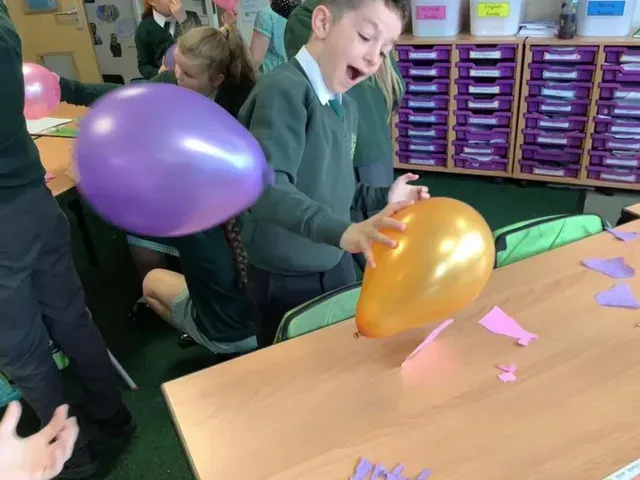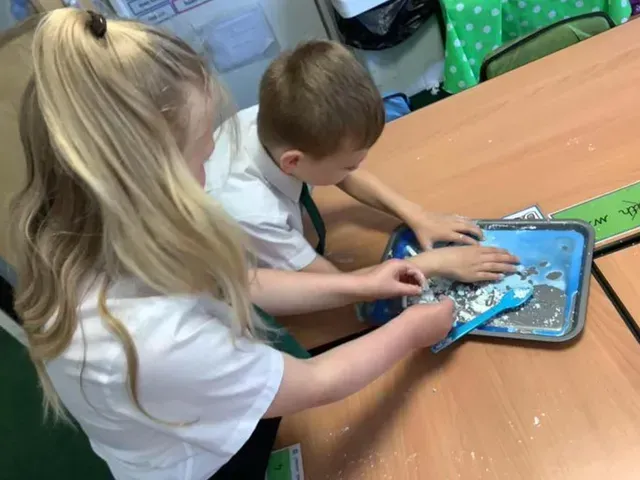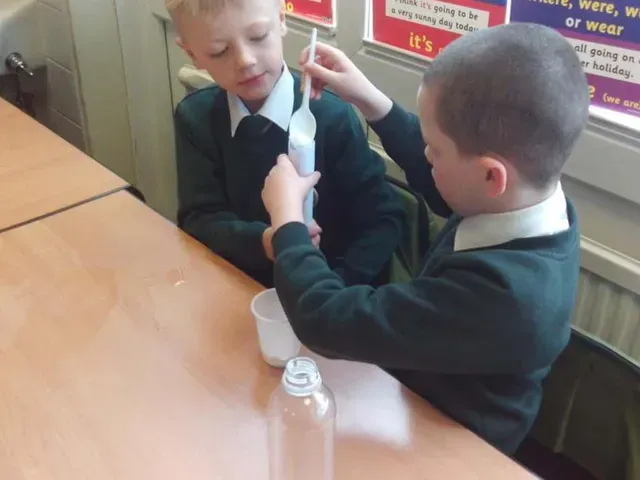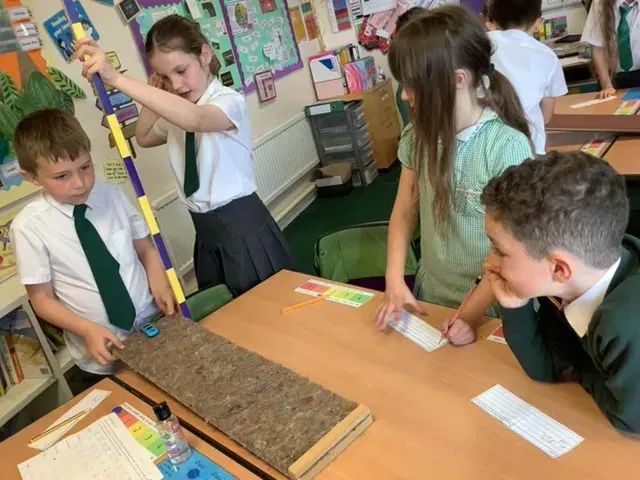
Science
Teaching of Science at Glenthorne Community Primary School
Intent
When teaching Science at Glenthorne, our intention is to provide an inspiring curriculum that gives children the opportunities to strengthen their investigative skills and scientific knowledge to aid them in understanding the world that they are growing up in. This is brought about through exciting, practical and thought-provoking learning experiences that allow children to progress further through the science curriculum.
We encourage children to question, test and evaluate their ideas through the delivery of our varied and engaging science curriculum. Across Key Stage 1 and 2, Science is taught discretely in planned and arranged blocks each half term. Through our Science teaching, we aim to:
- allow our pupils to acquire a wide scientific vocabulary and continue to use it as they continue through school
- build upon knowledge taught previously in prior year groups in order to embed and deepen knowledge of each topic within our science curriculum
- encourage children to have the confidence to explore their natural curiosity about themselves and the world around them
- use discussion in order to learn; allowing pupils to elaborate and explain clearly their understanding and ideas
- engage pupils through the use of varied stimuli, including through investigations and experiments using scientific equipment and resources
- encourage collaborative working through group tasks and activities, thus leading to discussion and debate
- give opportunities for outdoor and out-of-classroom learning to support learning in lessons
Implementation
Teachers create a positive attitude to science learning within their classrooms and reinforce an expectation that all pupils are capable of achieving high standards in science. Our whole school approach to the teaching and learning of science involves the following;
- Science is taught in planned and arranged topic blocks by the class teacher; either as ‘Science Days’ every half term (Years 2-6) or every afternoon in a week each half term (Year 1). This is a strategy to enable the achievement of a greater depth of knowledge as children have the opportunity to develop their investigations, questioning and evaluating skills during the sessions.
- Through our planning, we involve investigation opportunities that allow children to apply their knowledge, and find out answers for themselves. Children are encouraged to ask their own questions and be given opportunities to use their scientific skills and research to discover the answers. This curiosity is celebrated within the classroom. Planning involves teachers creating engaging lessons, often involving high-quality resources to aid understanding of conceptual knowledge. Teachers use precise questioning in class to test conceptual knowledge and skills and address misconceptions that may either be pre-existing or become apparent during the sessions. Staff have been given training on how to ask high-level questions and are supported in their planning and delivery of science by experienced teachers where required.
- ‘What I Already Know’ sheets are completed before each topic and ‘What I Now Know’ sheets are completed after all teaching is completed in order to gauge progress over each topic. Children also complete an assessment at the end of each topic to apply their new knowledge. At the beginning of each topic, children will complete a short quiz on any previous knowledge that they should have about that topic as a revision task (for example, in Year 6 children will be quizzed on knowledge they will have gained from all previous years – any misconceptions/lack of knowledge can then be covered throughout their topic if necessary).
- We build upon the knowledge and skill development of the previous years. As the children’s knowledge and understanding increases - and they become more proficient in selecting and using scientific equipment as well as collating and interpreting results - they become increasingly confident in their growing ability to make conclusions based on real evidence. Working Scientifically skills are embedded into lessons to ensure these skills are being developed throughout the children’s school career and new vocabulary and challenging concepts are introduced through direct teaching. This is developed through the years, in-keeping with the topics.






